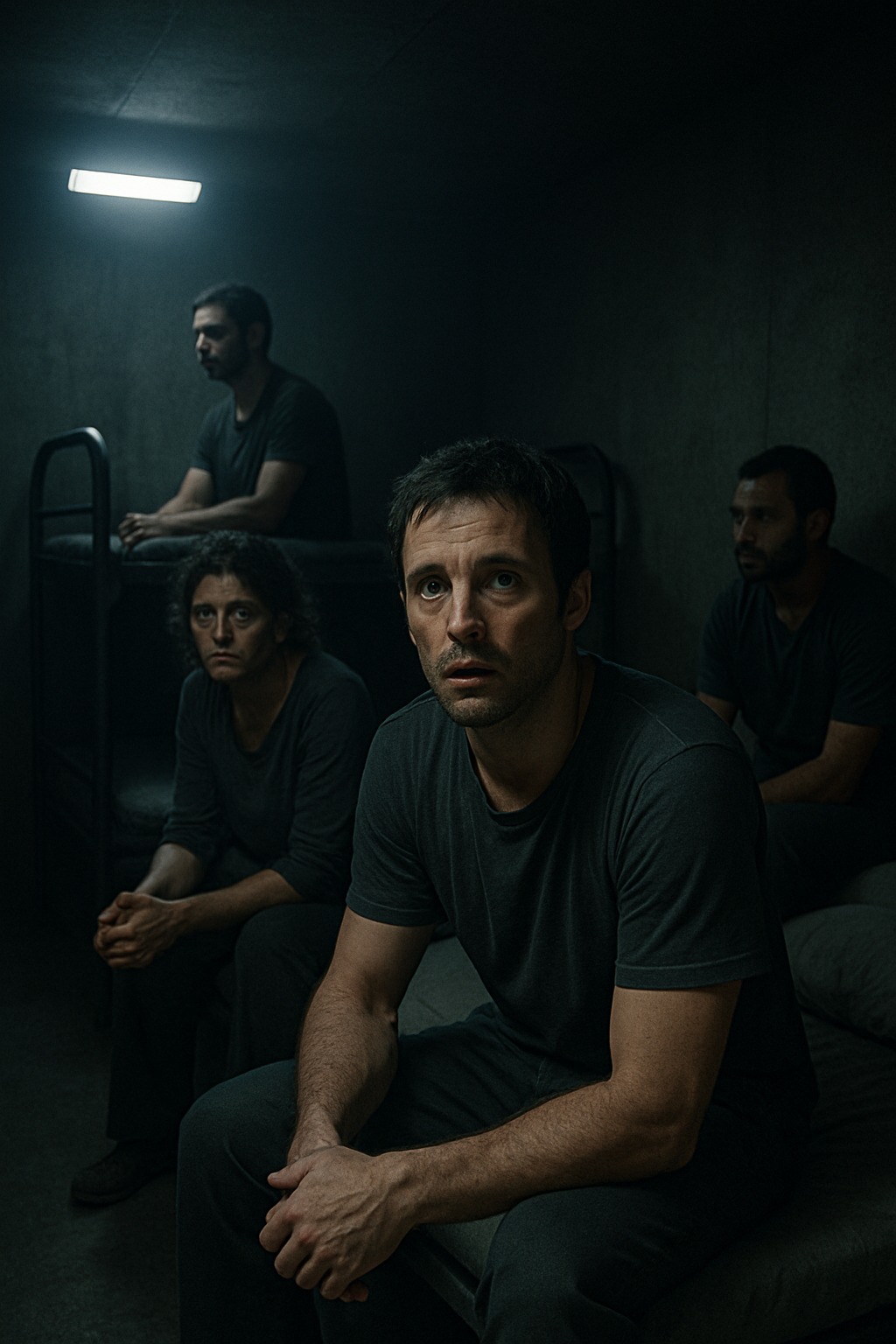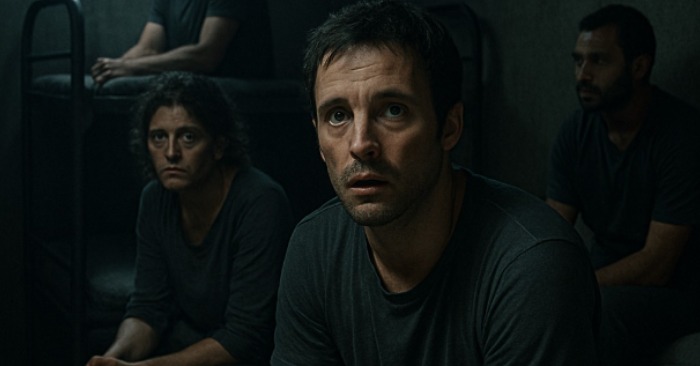Imagine waking up and never seeing the sun again. No sunrise to mark the beginning of your day. No glowing lamp to chase away the night. Just a blanket of pitch-black darkness that follows you everywhere.
That’s exactly what a group of volunteers agreed to experience when they signed up for a radical scientific study. Their task sounded simple on paper: spend 30 days in total darkness, cut off from natural light, clocks, and the rhythms of the outside world. They were safe, supplied with food and water, and constantly monitored by researchers. Yet what none of them realized was just how quickly the absence of light could break the human mind.
The First Days: Confusion and Curiosity
At first, the atmosphere was almost playful. The volunteers joked about bumping into furniture and laughed at the challenge of eating meals without being able to see the plate. One participant even bragged that the darkness made him feel like a superhero, sharpening his hearing and smell.
But beneath the jokes, something unsettling was already happening. Within hours, their natural body clocks—normally guided by the sun—began to falter. Some stayed awake for what felt like endless stretches of time. Others drifted into sleep at odd intervals, waking disoriented and unsure if they’d rested for minutes or days.
The walls of the room, painted black to erase all traces of reflection, became their only reality. And soon, that reality turned claustrophobic.
The Second Week: Hallucinations and Fear
By the seventh day, things took a darker turn. Several participants began hearing things that weren’t there: whispers in the corners, faint footsteps, the sound of someone breathing right beside them.
Others reported seeing flashes of light—swirls of glowing patterns or human-like figures hovering in the blackness. One woman swore she saw her late grandmother standing at the edge of her bed, only to realize, in tears, that it was her mind playing cruel tricks.
The lack of time markers—no sunrises, no shadows, no clocks—made their days blur into a shapeless loop. Volunteers confessed to the researchers that they no longer knew how long they’d been inside. Some guessed it had been two weeks when it had only been four days. Others were convinced a month had already passed.
The Breaking Point
By the third week, the group was unraveling. Anxiety spiked to unbearable levels. One man became paranoid that the scientists had abandoned them, leaving them to die in the dark. Another grew convinced the experiment was actually a secret government test on human torture.
Small tasks became monumental. Pouring water into a glass ended with spills across the floor. Conversations turned into arguments as tension built between participants who couldn’t even see each other’s faces. Several stopped speaking entirely, retreating into silence as if words no longer mattered.
One volunteer later admitted that she began humming children’s songs to herself, just to remind her brain that she still existed.
The Final Days: Shadows of Themselves
As the 30-day mark approached, researchers debated ending the experiment early. Heart monitors showed spikes of stress that matched those of trauma victims. Sleep patterns had collapsed into chaos. Participants described dreams so vivid they couldn’t distinguish them from reality.
Some had started talking to imaginary companions, convinced they were not alone in the dark. Others clung to fragments of memory—reciting recipes, counting steps, repeating family names—desperate to hold on to something real.
When the final day arrived and the doors finally opened, the reaction was overwhelming. Some participants shielded their eyes and wept uncontrollably. Others laughed, giddy and unsteady, as though drunk on light. A few simply froze, staring silently at the sun as if seeing it for the first time in their lives.
What the Experiment Revealed
The aftermath was as alarming as the experiment itself. While most recovered after several weeks, some admitted to lasting effects: trouble sleeping, heightened anxiety, and lingering hallucinations. One man confessed that even months later, he sometimes panicked when walking into a dark room.
The researchers concluded that human beings are far more dependent on light than anyone imagined. Light doesn’t just let us see—it anchors our sense of time, our emotions, and even our grip on reality. Without it, the mind drifts into chaos with frightening speed.
The lesson was clear: darkness is not just the absence of light. It is the presence of confusion, fear, and the unraveling of everything that makes us human.
What was meant to be a scientific study became something more chilling: a glimpse into just how fragile our sanity really is.







